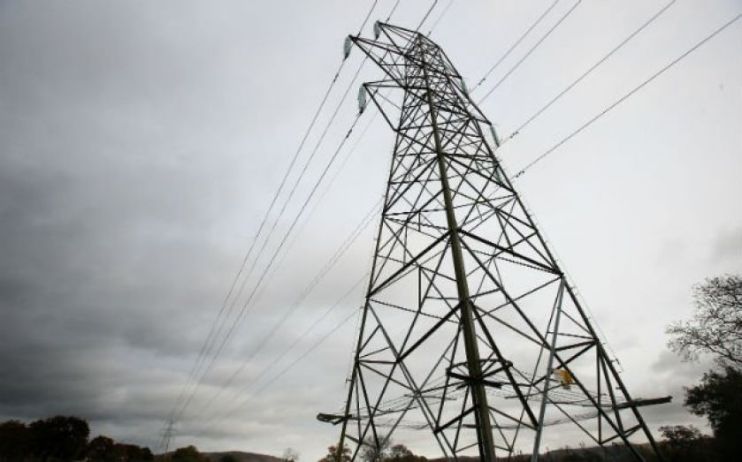National Grid posts £4bn profit amid soaring electricity and gas prices

Energy transmission giant National Grid has announced an 11 per cent uptick in underlying operating profits to £4bn, powered by spikes in electricity and gas prices.
The boost in earnings in its full-year results reflected more lucrative trading, and a reduced impact on business from the pandemic compared to 2020/21.
The company also invested record amounts during the 12-month period, including capital investment of £6.7bn for continuing operations, as well as over £300m interconnector investment across the year.
National Grid has also finalised the £7.9bn acquisition of Western Power Distribution (WPD), the UK’s largest distributor.
It has also revealed a full year dividend to 50.97p, up 3.7 per cent in line with expectations.
Chief executive John Pettigrew said: “National Grid remains focused on positioning our business, through acquisitions and investment, to deliver net zero while continuing to safely ensure security of supply at the lowest possible cost to consumers. And our results today reflect the strength of this strategy.”
He added that the purchase of Western Power Distribution has “pivoted our business to a much greater focus on electricity infrastructure, putting us at the heart of delivering the energy transition”.
National Grid pledges to ramp up investment plans
National Grid runs the UK’s energy infrastructure, transporting power from generators to homes.
Its results come against against the backdrop of economic turmoil following Russia’s invasion of Ukraine, which saw energy prices peak at record highs earlier this year, with expectations of a further hike to the consumer price cap.
Alongside this year’s spending, the group intends to invest £24bn into green projects to decarbonise energy networks in the UK and elsewhere over the next five years, as part of a wider £30-35bn investment plan.
The government is looking to significantly ramp up renewables and nuclear power generation, alongside further North Sea oil and gas exploration, to reduce its dependence on overseas buyers.
It unveiled ambitious plans to vastly increase domestic power generation when it published the supply security strategy last month.
Pettigrew said: “It’s a record level of investment for National Grid, I think it makes us the largest investor in the energy transition in the FTSE. It just gives you a sense of the scale of investment we’re going to be doing over the next few years. Of course we are going to try to do that as efficiently as possible to keep bills down for customers.”
The energy distributor said rising inflation and a cost-of-living crisis posed a “significant” challenge.
The company expects earnings for 2022/23 to be broadly flat on the reported figures and said it maintains its financial outlook over the five-year period to 2025/26.
Pettigrew explained: “The world has changed dramatically over the last year, with the tragic war in Ukraine, a global economic slowdown, and rapidly rising inflation.”
UK inflation topped nine per cent in April, its highest annual rate since 1982.
Commenting on the results, Laura Hoy, equity analyst at Hargreaves Lansdown said: “National Grid’s planted itself firmly at the centre of the electric revolution with a portfolio that’s set to lean 70 per cent to electrification. That’s offered a huge growth opportunity for the company as it looks to shore up the existing grid and expand capacity to allow for the influx of new connections.”
However, she warned its spending plans reflect difficulties facing regulators in boosting the UK’s energy infrastructure amid spiralling energy bills.
She explained: “The group argues that it must spend to keep up with the UK’s ambitious climate change targets, the current grid simply isn’t strong enough to cope with a ballooning number of new connection requests. In normal times this wouldn’t be much of an issue, utilities are constantly negotiating with regulators on how they’ll be compensated for infrastructure investment. But with energy prices soaring uncomfortably higher, price hikes for customers are inevitable. Together with the investment needed to shift to an all-electric future, it leaves regulators stuck between a rock and a hard place.”
Rocky road ahead for UK energy sector
The results also follow significant divestment decisions this year, with the group’s offering being streamlined amid market volatility.
In March, National Grid announced it was offloading its 60 per cent stake in its gas transmission and metering arm to Australia’s Macquarie Asset Management and Canada’s British Columbia Investment Management Corporation in a £2.2bn deal.
The National Grid will also no longer be responsible for keeping the country’s electricity and gas flowing, in the biggest overhaul of the UK’s energy infrastructure since the company was privatised 30 years ago.
The government has announced the division of The National Grid overseeing supply and demand across the country will be returned to public control by 2024.
National Grid Electricity System Operator (NGESO) – which is a separate legal entity from the FTSE 100 company – will be effectively nationalised and turned into a Future System Operator (FSO).
Following the results, John Pettigrew told reporters he was opposed to a windfall tax on energy companies, concerned it would “act a deterrent for investment.”
John Pettigrew said: ““At a macro level, I think it’s really important, as we look at the targets for net zero by 2050, that we have a stable investment environment.”
It would not be affected by a windfall tax, which would be levied on oil and gas giants that have benefited from soaring prices.
Last week, it pledged to pay £200m to households over the next two years from trading energy via its subsea cables, as part of an agreement with Ofgem.